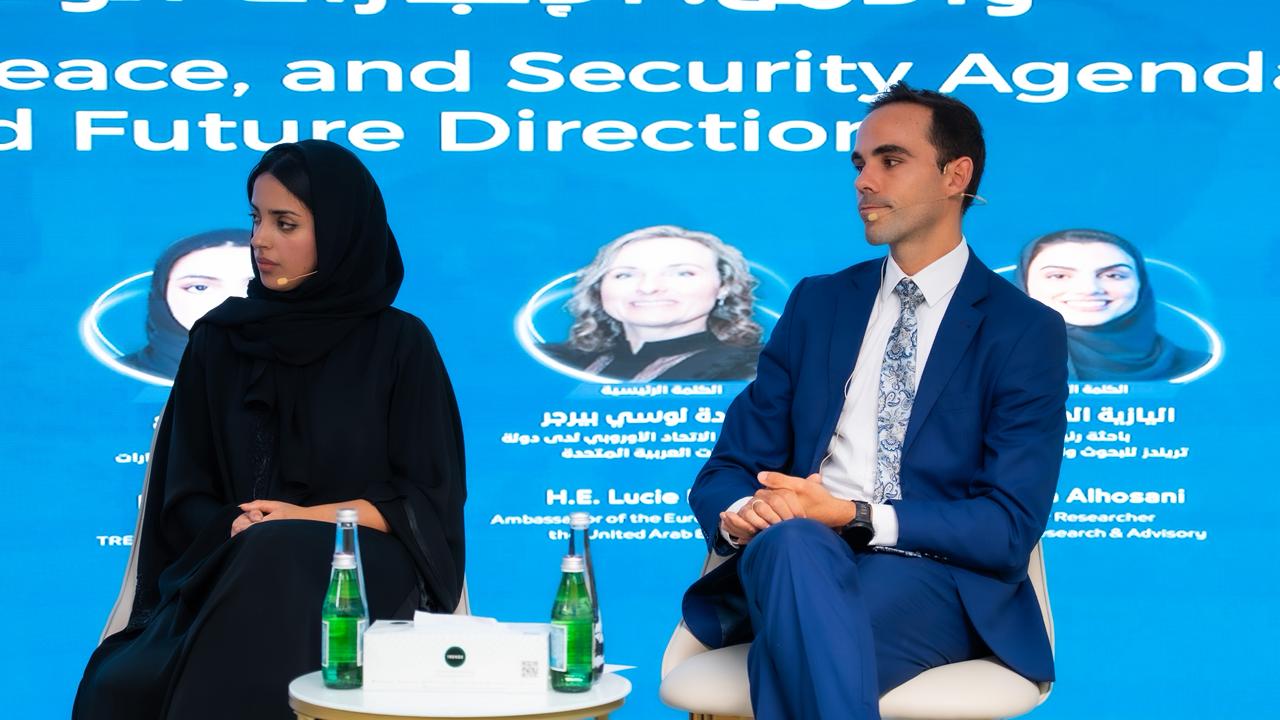#Diplomats and Academics:
- Violence against women in conflict zones remains widespread, and women continue to be marginalized in peace and security processes
- Promoting gender equality, ensuring women’s access to education, and expanding community participation are essential priorities
- Women represent only 21 percent of ambassadors, less than 30 percent of parliamentarians, and 13 percent of defense ministers worldwide
- The world urgently needs the effective implementation of UN Security Council Resolution 1325 to help overcome the challenges faced by women
Marking the 25th anniversary of UN Security Council Resolution 1325, known as the Women, Peace, and Security Agenda, TRENDS Research & Advisory, in partnership with the Embassy of the Kingdom of Belgium in the United Arab Emirates and through its offices in Dubai and Brussels, organized a high-level panel discussion – Twenty-Five Years of the Women, Peace, and Security Agenda: National Achievements and Future Directions. The event was held at TRENDS’ headquarters in Abu Dhabi.
Moderated by Najla Al-Midfa, researcher at TRENDS, the panel discussion brought together diplomats, academics, researchers, and specialists to explore future directions in the Women, Peace, and Security Agenda. Discussions also examined key national achievements and highlighted new approaches and priorities that can further enhance women’s participation in peacebuilding, policymaking, and leadership.
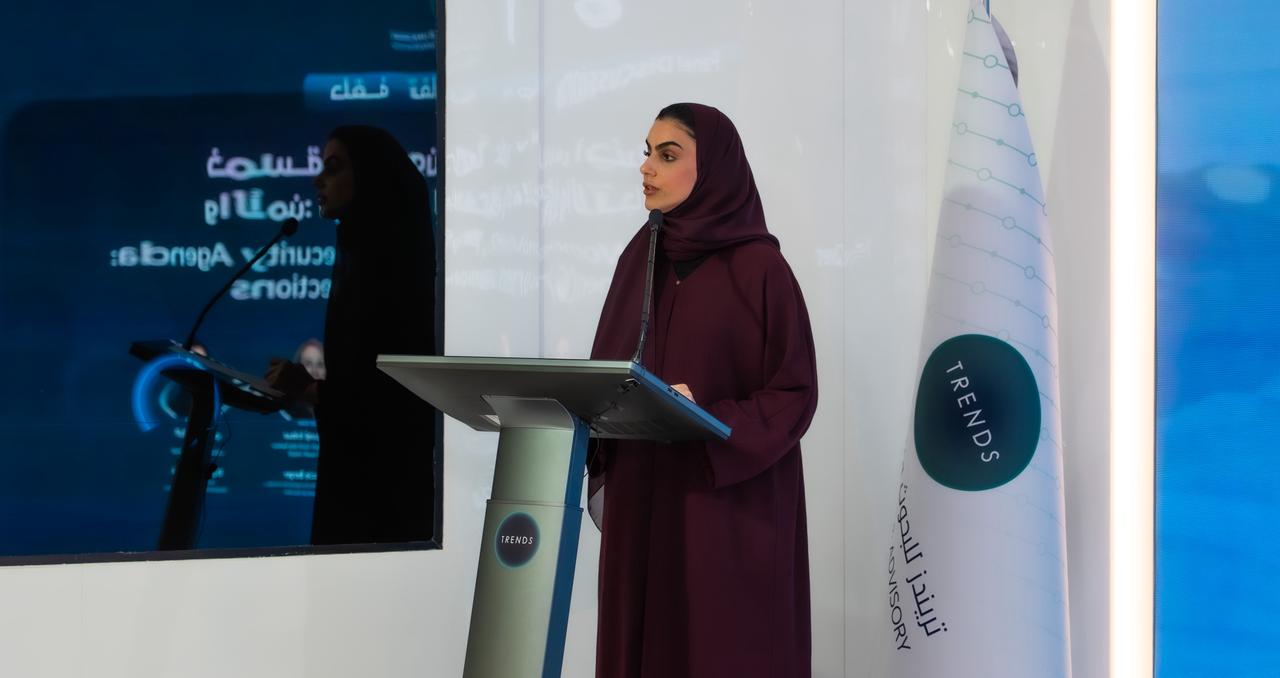
Women’s Inclusion in Leadership
Opening the panel discussion, Elyazia Al-Hosani, Senior Researcher at TRENDS Research & Advisory, delivered the welcoming remarks, noting that the event marks the 25th anniversary of the UN Security Council Resolution 1325, a landmark resolution that placed women at the heart of peace and security efforts. She emphasized that the discussion is not only a moment for reflection but also an opportunity to explore how education, political innovation, and institutional collaboration can sustain the relevance of the Women, Peace, and Security Agenda in a rapidly changing global landscape.
She added that the panel discussion aims to advance the principles of the women, peace, and security agenda, from diplomatic engagement and academic initiatives to evidence-based policymaking and implementation, while reaffirming the ongoing commitment to integrating women into leadership and sustainable peace processes.
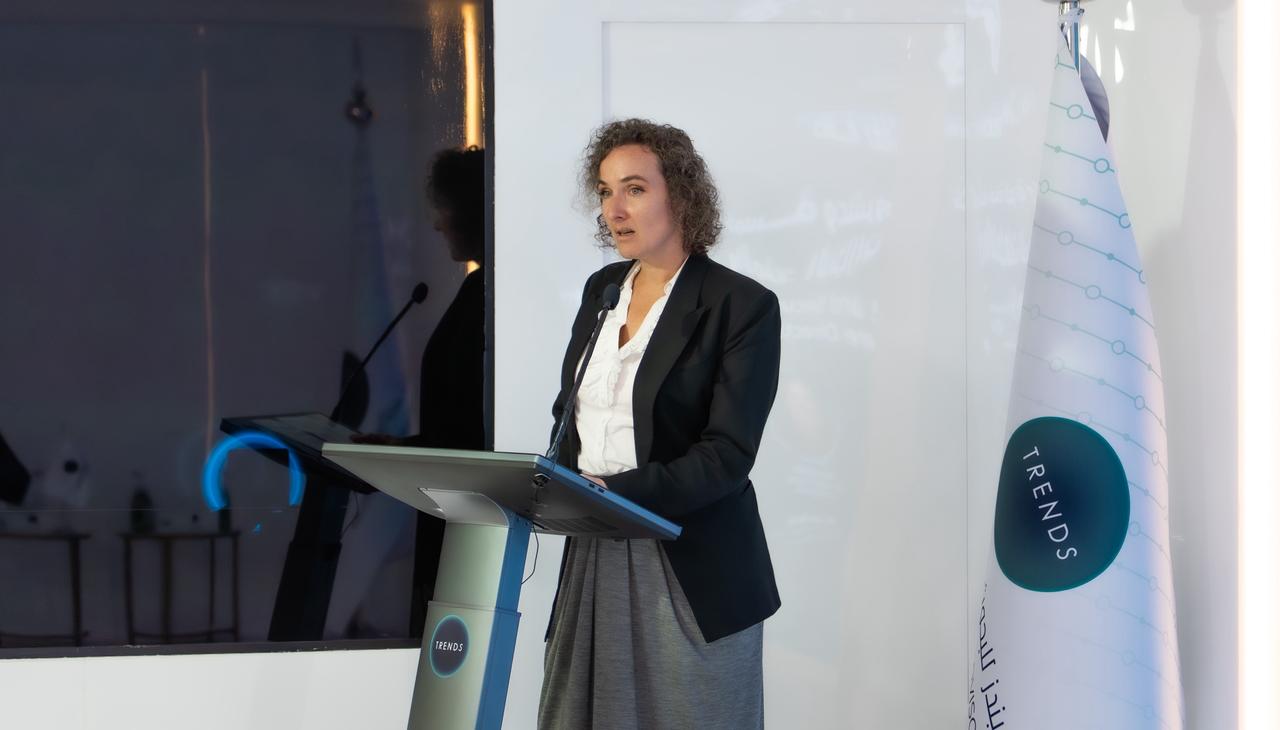
Women in Conflict Zones: 676 Million
In her keynote address, H.E. Lucie Berger, Ambassador of the European Union to the United Arab Emirates, referred to the 2025 UN Secretary-General’s Report on Women, Peace, and Security, which warns that 676 million women live within 50 kilometers of deadly conflict – the largest number since the 1990s. She noted that women remain largely excluded from decision-making processes; however, the European Union and its member states strongly support the Women, Peace, and Security Agenda, making gender equality a cornerstone of peace and security.
Ambassador Berger emphasized that the EU will continue to advance this agenda in partnership with the United Nations, member states, and other countries. She added that supporting women is a shared responsibility and that empowering women in peace and security processes is essential, particularly in times of crisis and amid emerging geopolitical challenges.
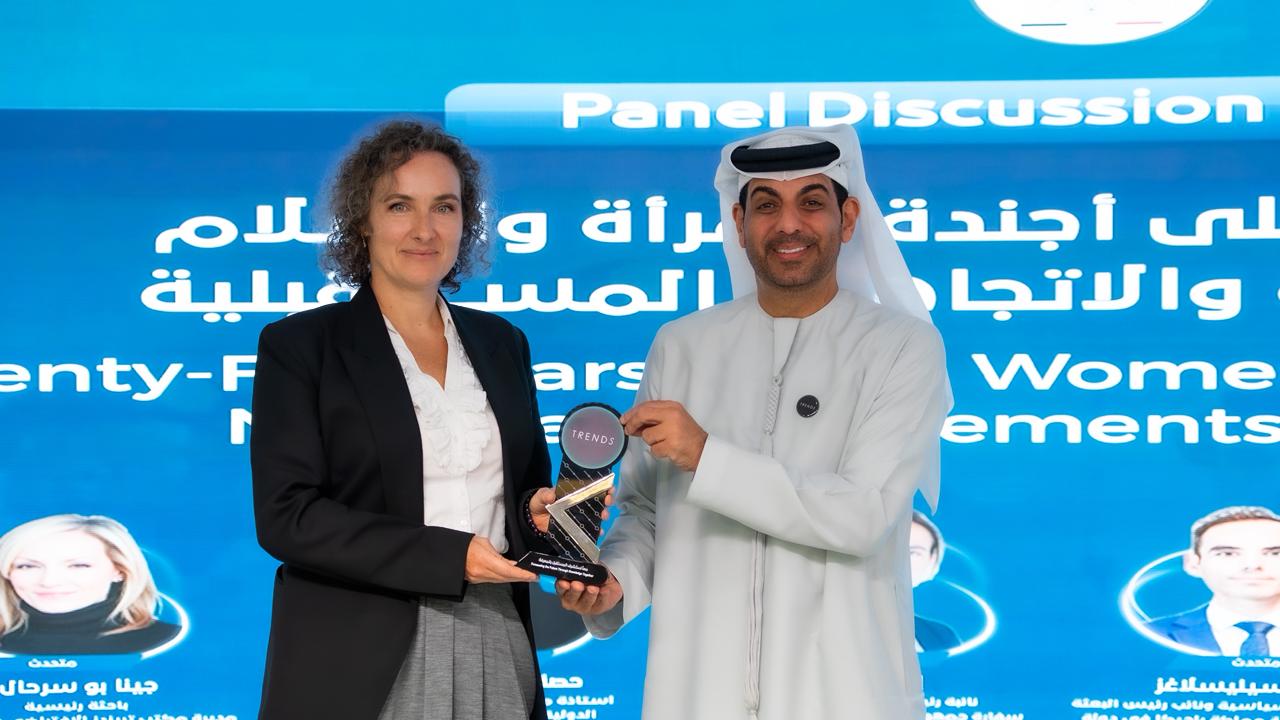
Six Critical Priorities
Joren Selleslaghs, Counsellor for Political Affairs and Deputy Head of Mission at the Embassy of Belgium in the UAE, noted that since the adoption of UN Security Council Resolution 1325, global attention to the women, peace, and security agenda has grown significantly. The number of analyses, reports, and discussions has also increased; however, conflict-related violence remains widespread, and women continue to be marginalized in peace and security processes.
He explained that the Women, Peace, and Security Agenda remains a top priority for the Kingdom of Belgium, whose National Action Plan 2022-2026 is built around six key priorities: strong political will, broad participation of civil society, combating violent extremism, addressing security risks linked to climate change, fighting drug trafficking, and strengthening laws and decisions promoting gender equality and women’s rights.
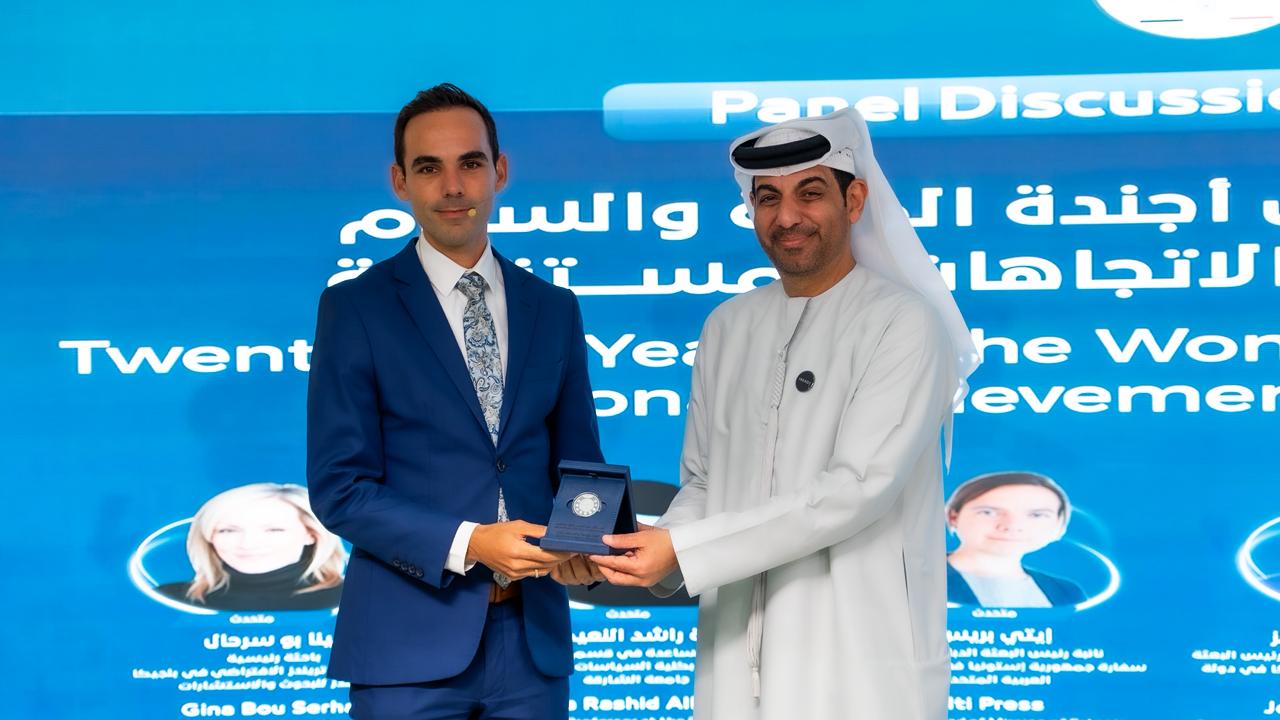
Human Rights Diplomacy
Iti Press, Deputy Head of Mission of the Embassy of Estonia in the United Arab Emirates, explained that the Women, Peace, and Security Agenda has become a key priority within Estonia’s Human Rights Diplomacy Action Plan, ensuring its systematic integration into Estonia’s positions at multilateral international forums.
She added that Estonia has supported local initiatives and women’s organizations in Ukraine, Afghanistan, Georgia, and other regions, with a focus on gender equality, access to education, and broader community engagement. Specific projects have also concentrated on providing psychosocial support, facilitating reintegration, and protecting women and girls from violence.
Press further noted that Estonia is committed to empowering women in senior positions so they can influence issues that directly affect women in conflict zones. She also highlighted Estonia’s focus on cybersecurity, online misinformation, and digital violence related to women, peace, and security, thereby strengthening resilience and enhancing the capacity to address emerging digital threats.
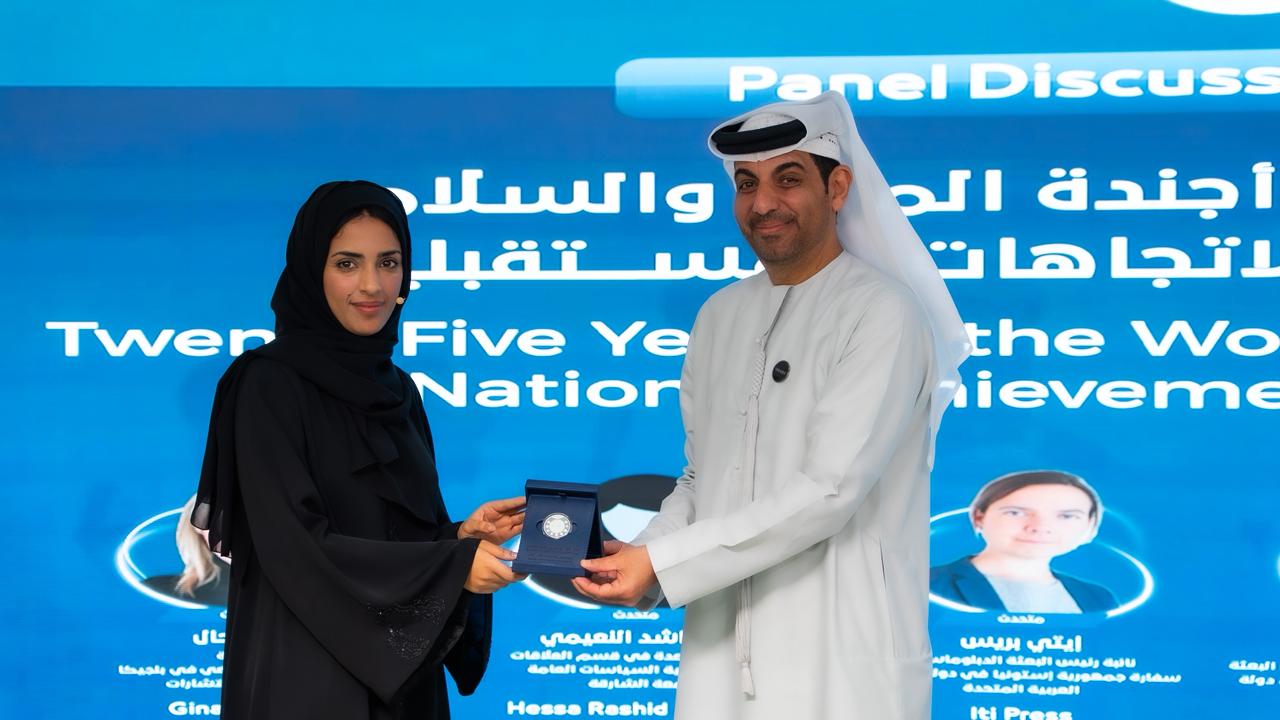
Hessa Rashid Al-Nuaimi, Assistant Professor at the Department of International Relations, College of Public Policy, University of Sharjah, stated that the world urgently needs the practical and effective implementation of UN Security Council Resolution 1325, known as the Women, Peace, and Security Agenda, adopted in 2000. She emphasized that doing so would help address and overcome the challenges women continue to face across the globe, while strengthening the link between gender equality and sustainable development.
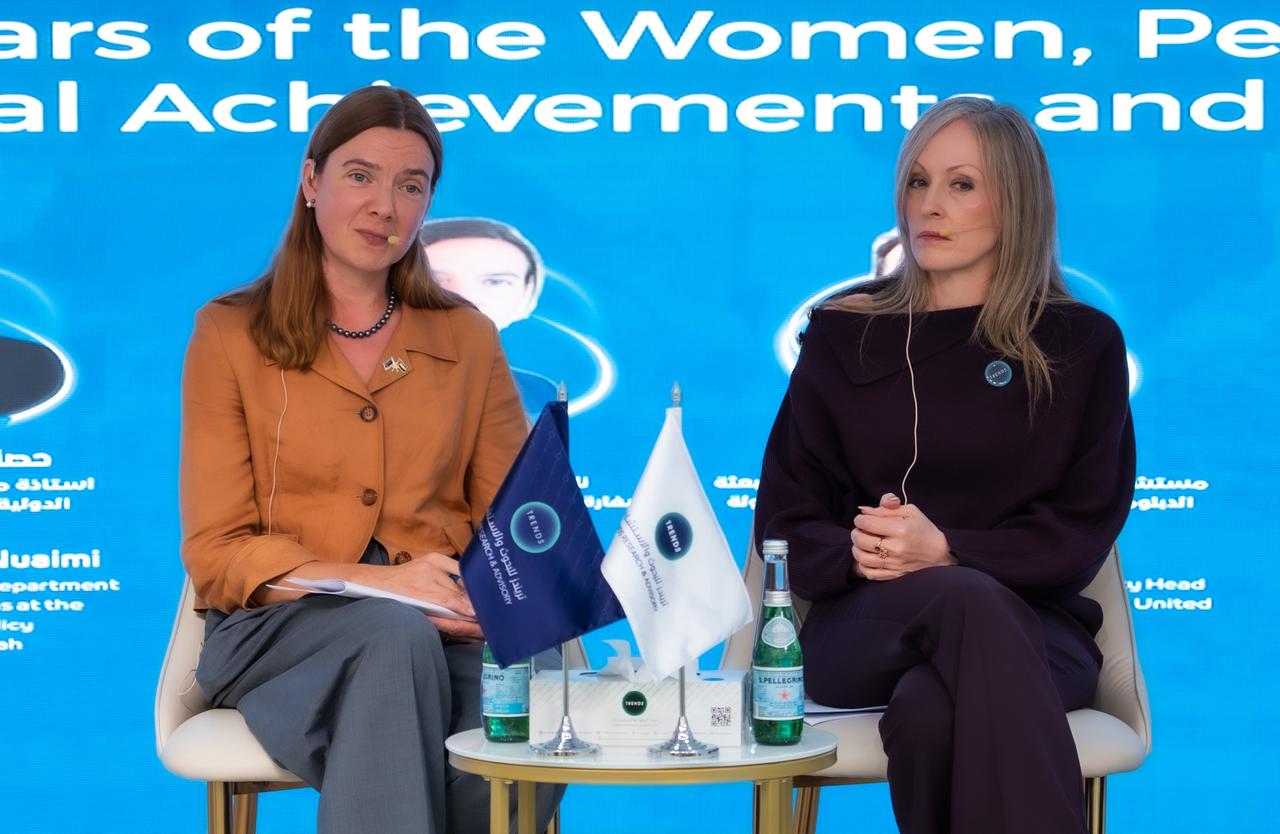
Between Progress and Gaps
Gina Bou Serhal, Senior Researcher at TRENDS and Director of TRENDS Belgium Virtual Office, highlighted that despite notable progress, significant gaps still hinder full gender parity. Women currently represent only 21 percent of ambassadors, less than 30 percent of parliamentarians, and just 13 percent of defense ministers worldwide.
She noted that women’s representation in global security policymaking remains limited, with prevailing narratives still undermining diversity and inclusion within defense institutions, even as modern security challenges – from cyber operations to AI-driven defense systems – require new definitions of power that prioritize innovation, intelligence, and collaboration over traditional notions of strength.
Bou Serhal stressed the strategic importance of integrating women into science, technology, and innovation fields, where their participation remains modest. She concluded that linking gender equality to long-term peacebuilding demonstrates that equality is not merely a moral imperative, but a foundation for sustainable security and resilience.
